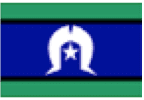The theme of this year’s International Women’s Day is #BreakTheBias. At SSRV we see the many ways in which social security law in Australia is biased towards traditional family structures and couples – and how this disproportionately and unfairly affects women.
Systemic bias to traditional finances
An example of systemic bias to traditional finances for families is when a partner’s income is higher than the income cut off point for a partnered person, which prevents the other partner from receiving the Centrelink payment or pension, even if they would otherwise be eligible.
SSRV has advised women whose partners have refused to give them access to any money, even though they are ineligible for social security payments because that partner earns too much.
The existing social security arrangement assumes that couples share and access all income evenly, which is outdated and not in line with the way many modern couples arrange their finances.
In this way, the system perpetrates economic injustice on these women and is out of line with the reality of many women and families in Australia.
Research shows that 15.7 per cent of women in Australia experience economic abuse, and that economic insecurity increases the risk of experiencing intimate partner violence. In light of this, Centrelink should provide a more responsive and timely mechanism to ensure that women who are experiencing economic abuse can easily access payments when they are needed.
Systemic bias to families’ traditional model of care
Another way the system perpetrates injustice on women is through a bias towards a traditional model of parenting with one parent being the primary carer.
An example of this is Parenting Payment, which can only be paid to one parent (either at a single or a coupled rate). The payment can only be paid to the primary carer of the child, and where both parents are in need and have 50/50 care, Centrelink must make an assessment of the party in greater need.
Again, this bias towards traditional models of having a single primary carer means many parents with genuine equal responsibility for a child miss out on receiving payments.
Numerous clients have told SSRV that, as a result, they have been unable to buy medicine or foods for their children.
The social security system must become fairer and let go of traditional assumptions and biases about families’ income and asset distributions.
SSRV legal advice
SSRV can provide advice to people who have experienced social security issues as a result of economic or other violence. Clients can call our Legal Assistance Line on 03 9481 0355 and workers can call 9481 0655.




